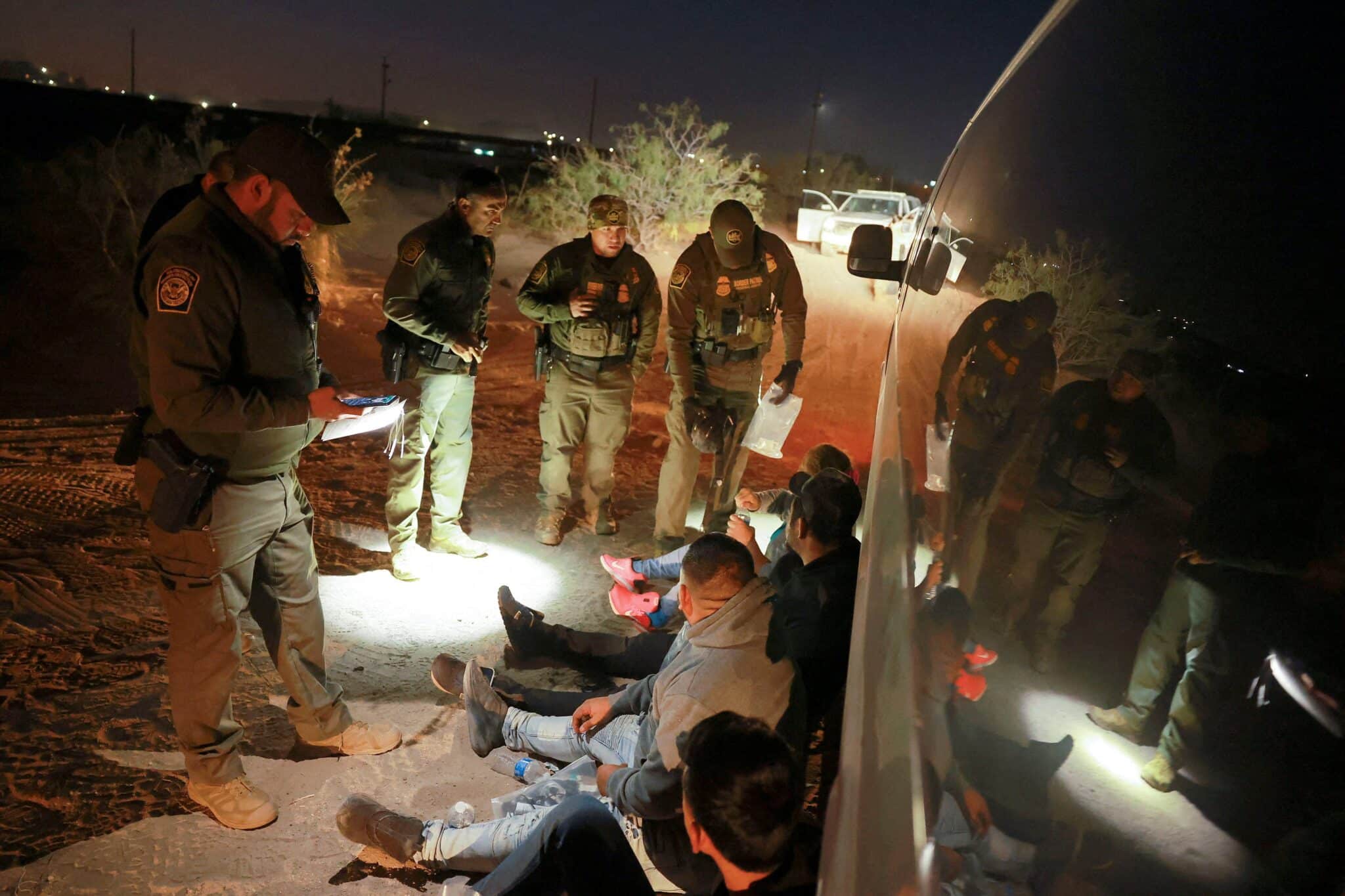My heart goes out to the many good people who have suffered the tragic breakup of their marriage. I would advise anyone in such a situation not to be afraid of the Church’s rules and regulations. Guidelines exist for the good of society, but we realize that individuals are saved one by one. Sometimes the general rules set up to achieve justice fall short of the target.
The late Bishop Fulton Sheen explained that there are two kinds of truth: “An outer truth is one we master, for example, the distance of the sun from the earth. An inner truth is one that masters us, for example, God is merciful to the penitent. Outer truths of physics and chemistry come to us without desire, sorrow, pity or emotion. Inner truths carry some emotions with them and influence behavior. “
I received my doctorate in canon law in 1964 and have worked for the marriage tribunal of the Diocese of Paterson, New Jersey, for many years. I was in charge of it for nearly 10 years and now serve part-time as a presiding judge on the court of second instance (roughly similar to a civil court of appeals).
Over the years I have been asked hundreds of questions concerning annulments in the Catholic Church, but here I will answer those most frequently asked.
Why Is the Church So Strict about Marriage?
The Roman Catholic Church teaches that a new marriage cannot be initiated while a previous marriage still exists. Whether or not you agree with the Catholic Church’s teaching, at least know that it is based on a time-honored interpretation of the words of Jesus, “What God has joined together, no human being must separate ” (Matthew 19:6).
A civil divorce puts a marriage asunder and bestows the right to remarry. The Church does not acknowledge the right of civil authorities to dispense from vows taken in church.
Divorce has become commonplace in all walks of society, even in marriages where there are children. Some parents put their own happiness before the good of the children. Others are more conscientious and terminate their marriage to save the children from a dysfunctional family situation. In either case the children suffer. The Church tries to minimize this suffering.
Divorce contributes to as many as three out of every four teen suicides and four out of five psychiatric admissions. The children of divorce are much more likely to drop out of school, have premarital sex and become pregnant outside of marriage than youngsters in intact families.
Young adults from ages 18 to 22 who are from divorced families are twice as likely to have poor relationships with their parents. They show higher levels of emotional distress as young adults than those from intact families.
Our culture has so trivialized sexuality in the last 30 years the divorce rate has doubled, and the number of divorced adults has quadrupled.
This does not mean that all divorcees are bad people, not at all. Many of them are saints-in-training who gave more than 100 percent to make their marriages work. Sadly that effort was not enough because, as everyone knows, it takes two to tango.
It should be noted that divorced Catholics are not excommunicated from the Church. They are considered Catholics in good standing and they have the right to receive holy Communion as long as they have not entered an uncanonical marriage.
The only way a divorced Catholic can remarry lawfully in the Church is by obtaining a Church annulment.
What Is a Church Annulment?
An ecclesiastic annulment is a declaration by the Church that a marriage which was thought to be valid was not legally binding. This might be because of some defect in the consent given on the day of the wedding, or possibly a defect in the psychological capacity of one of the parties.
When an annulment is granted, the Church is not saying that there never was a marriage. The union certainly was a sociological fact, and the memory of it may even be cherished, but the legal contract on which it was based turned out to be invalid.
Canon law declares that all the children born of an annulled marriage are legitimate. The unfortunate designation “illegitimate ” is hardly used anymore, but it is technically reserved for those born out of wedlock, which is certainly not the case in an annulled marriage.
When a doubt about the validity of a marriage arises, you have to present your petition to the tribunal in the diocese where you are living, or where the marriage took place. Your local pastor can help you make contact with the appropriate tribunal.
If you need help identifying grounds, the tribunal may assign an advocate to help you. There are priests, laymen and laywomen who are trained to perform this task. You have the right to go to any canon lawyer of your choice to help you with your petition. It is best to find someone in your area.
If you have witnesses to support your allegations, the tribunal will probably accept your case for trial. About 20 percent of the cases presented never come to trial because of insufficient grounds or a lack of evidence. This prescreening process explains in part the high percentage of affirmative decisions. Tribunals only take the cases that have a good chance of succeeding.
The Church’s judicial system is human and, therefore, imperfect. We attempt to bring compassion to each situation in our search for the truth, but it may not always look that way. In order to help people resolve their doubts about the validity of their marriages, we have to collect the evidence and conduct a trial. This can be irksome.
This is a not a trial by jury, but a trial by tribunal, which is the same system that is used in a military court of justice. Usually three priest-judges form the tribunal, and they decide the case by majority decision. When there is a shortage of judges, one priest-judge may preside.
If an annulment is granted by the court of first instance, it must be upheld by an appeals court in another diocese (the court of second instance). You need two concurring affirmative decisions before the annulment is final. If there is a split decision between the two lower courts, the case must go to the Roman Rota for a final resolution.
What Are the Grounds for Annulment?
The grounds most frequently presented to the courts are as follows:
1) A lack of due discretion. For example, suppose a woman has married her deadbeat husband because she was pregnant. He refuses to go to work, sitting around the house drinking beer all day while she supports the family with an outside job. She does all the shopping, cooking and childcare. After a few years she decides she has had enough and begins divorce proceedings.
Someone advises her to approach the marriage tribunal for an annulment, alleging that she married in haste. In other words, she lacked the discretion necessary to spot his personality disorder. Her husband promised to take care of his family, but clearly he did not have the character or the desire to do so. She claims that if she had known what kind of a misfit he really was she never would have married him. If she can prove that he behaved this way, the tribunal will probably grant her an annulment.
2) Defective consent. If, on the day of the wedding, one of the parties lies about an essential property of the marriage, it amounts to fraud going to the heart of the contract.
The Church will marry a couple only if both parties intend to enter an exclusive union, which is open to the possibility of procreation. If one party deceives the other substantially, a serious fraud has been committed. For example, take the case of a woman who promised to enter into an exclusive union, but kept a lover before, during and after the marriage. If you can prove it, the judges will annul the marriage because she never intended an exclusive union. This is more than weakness or infidelity; it is fraud.
To avoid collusion between a husband and a wife in presenting a made-up story just to get a Church annulment, we have a defender of the bond to uphold the validity of the marriage against all challenges. This officer of the court argues against the granting of an annulment unless it is an obviously deserving case.

3) Psychic incapacity. If a person is incapable of fulfilling the burdens and obligations of marriage, the marriage can be annulled. You cannot make a promise to do something you are incapable of doing. For instance, a paranoid schizophrenic may have behaved normally at the time of the wedding, but later, when the illness becomes full-blown, the marriage falls apart.
It is only because of our new knowledge in the field of psychology that we have come to understand that a latent condition can affect the consent retroactively. Some of these cases involve persons who are psychotic, but not all. A serious neurosis can also affect the capacity to marry.
These cases are becoming more common. Neil Clark Warren, a psychologist and marriage counselor, estimates that in 75 percent of all divorces at least one party is emotionally unhealthy. In countries where there is a vigorous drug subculture, Warren’s claim is not an exaggeration.
Forty years ago people were told, “You made your bed, now lie in it. ” This is too simplistic a rule when it comes to mental or emotional illness. We learned this new jurisprudence from the Sacred Roman Rota. Decisions of the Rota are only made available (with names deleted) 10 years after they are issued.
When I was the judicial vicar in the Diocese of Paterson in the early 70’s, I began reading the decisions of the Roman Rota on a regular basis and was amazed to find that they were granting annulments to people who were extremely immature. I also found that the Rota had been granting annulments in cases involving psychotics and neurotics as well. The American Church was 10 years behind in its jurisprudence.
4) Informal cases (prior bond and defect of form). Annulments are given in other less complicated cases where it is not necessary to go to trial. For instance, if it is discovered that a man was validly married to someone else before he married the petitioner, but lied to his wife, the second marriage will be nullified on the grounds of ligamen, which is Latin for a “prior bond. ” These cases are settled rather quickly in an administrative process which involves little more than documentary evidence.
The same type of administrative process is used when Catholics marry outside the Church. This is called a declaration of nullity based on a “defect of form. ” The couple did not exchange vows before a priest and two witnesses in a Catholic church as is required by canon law. When Catholics fail to observe this law, the marriage is invalid. These “defect of form ” cases account for more than half of all the annulments granted in the Catholic Church.
How Much does it Cost?
If you are really poor, it costs nothing. If you have limited means, you pay as much of the fee as you can. If you have means, you pay the full tribunal fee which ranges from $500 to $1,000 depending on the locality.
There is a lot of misunderstanding when it comes to annulment fees. Some people say that you can buy an annulment in the Church. If that were true, which it is not, why do we have such an elaborate scheme to thwart any form of corruption? You would have to bribe six different judges in two different dioceses and any one of them could throw the case out in a second. Daring to tamper with the justice system is a crime in the Church as well as the state.
The American tribunal system ended up $14,000,000 in the red last year. It is not now and never was a money-making proposition, but many times I have heard people spreading tIf you are really poor, it costs nothing. If you have limited means, you pay as much of the fee as you can. If you have means, you pay the full tribunal fee which ranges from $500 to $1,000 depending on the locality.he rumor that they did not get their annulment because they were not willing to pay the huge fees involved. More likely than not, their case was rejected because they did not have any credible evidence to support it. Tribunal fees are minimal compared to civil divorce fees.
Once an annulment is obtained, both parties to the marriage are free to remarry in the Catholic Church. The person who is the culpable cause of the invalidity, however, such as the woman with the lover, may not be allowed to remarry in the Church unless she has reformed her life. This would have to be verified through counseling or some other means.
What Is the Internal Forum?
The internal forum is the forum of conscience, while the external forum is the ecclesiastical court of law. As Fulton Sheen said, there is a knowledge deeper than the laws of science.
The dilemma of divorced Catholics comes into play when they are intimidated by the Church’s annulment process or simply outraged by it. Maybe the fear of a violent former spouse is at play. Others may not be able to pursue their case because of some error in judgment on the part of the tribunal personnel. Mistakes are made.
If someone feels he or she has a right to an annulment, but cannot vindicate that right in the tribunal, that person might find it necessary to talk to a priest or a counselor about whether to proceed on the basis of conscience or the internal forum.
Believing their prior marriage to be invalid, many Catholics have divorced and later remarried civilly without having obtained a Church annulment. This is a violation of Catholic law and, technically, they are living in sin, but suppose the legal presumption of validity attributed to their first marriage is not accurate. Perhaps they are right and should follow their consciences.
Every marriage is different, so it is impossible to judge the state of a person’s soul based on the external facts of a case as they appear on the books. There are cases where a person is justified in acting contrary to the law.
If someone wakes up from the nightmare of a disastrous marriage in a state of disorientation, the victim of abuse and hatred, it might take a long time to recover. As the person begins to heal, he or she may for the first time find a new love. The couple may come to see this new relationship as a gift from God. At the same time they are in conflict because they hear the Church saying that they are living in sin. They try for an annulment but are told they have no case.
Once they work through the conscience issue, they may decide to use the internal forum solution. They may consult with a priest-confessor or counselor for advice. A priest cannot marry them because this would be simulating the sacrament, but he may encourage them to follow their conscience if the facts seem to support them.
Pope John Paul II in his apostolic exhortation Familiaris Consortio has forbidden them to receive the Eucharist if they marry invalidly. Many of them receive anyway, believing that their second marriage is not a sin but a blessing.
This civil marriage violates the strict letter of the law, but freedom of conscience comes into play here. The right to marry is a natural-law right, and this right must be weighed against the doubt about the validity of the first marriage. A hateful, abusive husband is probably a psychologically damaged human being, whether we can prove his personality disorder or not.
It is a delicate issue, but very few priests would turn anyone away from receiving the Eucharist. The burden is on the person to do what he or she thinks is right. A Catholic is bound to form his or her conscience according to the teaching of the magisterium, which is the Church’s highest teaching authority. What does this mean exactly?
Theologian and scholar Father Avery Dulles, S.J., in a talk given at a 1991 workshop for members of the hierarchy from all over North America—an assembly which included cardinals, archbishops and bishops—explained the relationship between conscience and the magisterium in this way:
“There is no perfect identity between conscience and the magisterium of the Church. Conscience is an interior, not an outer, voice….The magisterium fulfills the aspirations of conscience by enabling it to find the moral good at which it aims….For members of the Church, the magisterium is one, but only one, informant of conscience ” (Proceedings of the Tenth Bishops’ Workshop, Dallas, Texas).
I was on the same program and I observed that there was no objection to this statement. This means that an informed conscience is not always a conformed conscience. The Church urges us to strive for conformity, but this is not always possible.
There is a great mystery here, but the Church upholds freedom of conscience to the extent that, even if a person is in error, he or she must obey an informed conscience. When it is informed, outsiders should respect the person’s conscience even if they disagree with it.








